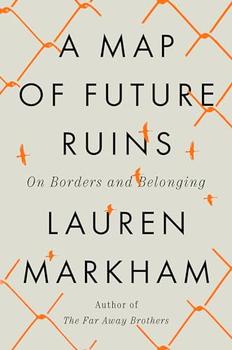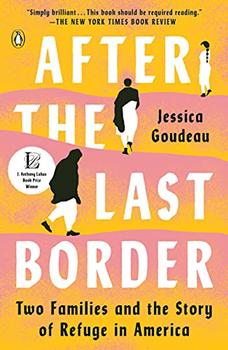Summary | Excerpt | Reviews | Beyond the book | Read-Alikes | Genres & Themes | Author Bio

One Family and Migration in the 21st Century
by Jason DeParleA Good Provider Is One Who Leaves follows three generations of the Portagana Comodas clan, a family Jason DeParle first met in the 1980s when he convinced Tita Portagana to rent him space in her single-room shack in a Manila shantytown—the sprawling slums where millions of the Philippine capital's poorest residents live. DeParle was a young journalist researching poverty. Tita was matriarch of a large extended family whose members were scattered across the globe. Seven of her ten siblings worked outside of the Philippines. So did her husband Emet.
At home in Manila, Emet had scraped by on wages of $50 a month—far from enough to support his family of seven. When Emet accepted a job cleaning pools in Saudi Arabia, his earnings increased tenfold. The money he sent home kept his family fed, provided vital medicine for an ill daughter, and paid for previously unheard of luxuries, such as an indoor toilet and the family's first bed. "I was ecstatic we could lie on something soft," Tita tells DeParle. Yet these gains came at a steep price. Emet's overseas work kept him away for almost 20 years. To provide a better life for his family, he had to leave them behind—the bitter tradeoff summed up in the book's title, a quote from Tita's sister Peachy.
It's a point vividly brought home to DeParle when he visits the Portagana Comodas family again in 2006, on assignment for the New York Times. Emet has returned from Saudi Arabia, but Tita and Emet's home is no longer a rundown shanty in the Manila slums but a three-bedroom pink bungalow with faux-marble floors. The opulence is made possible by their daughter Rosalie's overseas job as a nurse—a career path open to her in the first place only because Emet's own long years abroad made nursing school affordable.
All five of Tita and Emet's children grew up to be overseas workers, but it is Rosalie—the middle child, just 15 when DeParle first met her in 1987—who gets the starring role in the book. Her path from poverty in the Philippines to a middle-class life in America forms the narrative backbone of A Good Provider, anchoring the book as it winds through the experiences of cousins, grandparents, in-laws, aunts, uncles and other members of the clan to tell the larger migration story of the extended family across three decades.
Rosalie entered nursing school with an overriding goal: to make it to the United States, her ticket to a better life. After working for almost two decades in Saudi Arabia and the United Arab Emirates, Rosalie finally achieves her dream in 2012, landing a coveted nursing job in a Texas hospital. With novelistic detail, DeParle sketches her journey from the slums of Manila to the suburbs of Houston, chronicling her experiences in the Middle East, the ordeals of getting a visa and the challenges and pitfalls of assimilating to life in the U.S.
Until moving to the States, Rosalie's three children had mostly lived apart from their parents, cared for by other relatives. "They had to learn a new country and form a new family at the same time," DeParle notes. Rosalie's husband Chris chafes at the inversion of traditional gender roles entailed by his wife's breadwinner status, while their homesick children pine for the Philippines and struggle to adapt to American schools. But by the end of the book, Chris has found a job, the kids are blossoming at school, and the family has set up home on a quiet cul-de-sac nearby other Filipino families. Four years into their American life, the family flies home to the Philippines to visit for the first time since their arrival in the States. When it's time to leave the Philippines, there are tears of farewell but also feelings of eager anticipation. "I feel like I'm going home," Rosalie says. "The U.S. is my home."
In some ways, Rosalie is an unlikely heroine for a story about 21st century immigration. "Little about Rosalie, a four-foot, eleven-inch nurse, evokes the main American controversies," DeParle remarks. "She's the kind of immigrant who is largely invisible in political debate." Yet as a college-educated Asian woman, Rosalie epitomizes American immigration today to a growing degree. Asian immigrants have outnumbered Latin Americans since 2008. More than one-third of all newcomers have college degrees. And despite the national focus on illegal border crossings, three quarters of immigrants to the U.S. come through authorized channels, like Rosalie. As DeParle says, "Every corner of America has an immigrant like her."
DeParle is a good storyteller, and A Good Provider is an absorbing read. The personal journeys of Tita, Emet, Rosalie and other family members—fleshed out in rich detail—are seamlessly integrated into broad reflections on the history, controversies and debates surrounding immigration worldwide. An astute observer of current events, DeParle is adept at drawing connections to larger global trends, such as the political backlash against immigration in Europe and the U.S., the role of social media in immigrant communities, and the feminization of migration—the increase in female migrants as the global demand for caregiving labor grows. Both as a personal account of one family's experiences and as a general discussion of immigration trends, the book is an illuminating look at how immigration today is reshaping politics, cultured and economics around the world—and transforming America.
![]() This review was originally published in The BookBrowse Review in September 2019, and has been updated for the
September 2020 edition.
Click here to go to this issue.
This review was originally published in The BookBrowse Review in September 2019, and has been updated for the
September 2020 edition.
Click here to go to this issue.

If you liked A Good Provider Is One Who Leaves, try these:

by Lauren Markham
Published 2024
A mesmerizing, trailblazing synthesis of reporting, history, memoir, and essay.

by Jessica Goudeau
Published 2021
The story of two refugee families and their hope and resilience as they fight to survive and belong in America.
Flaming enthusiasm, backed up by horse sense and persistence, is the quality that most frequently makes for ...
Click Here to find out who said this, as well as discovering other famous literary quotes!
Your guide toexceptional books
BookBrowse seeks out and recommends the best in contemporary fiction and nonfiction—books that not only engage and entertain but also deepen our understanding of ourselves and the world around us.